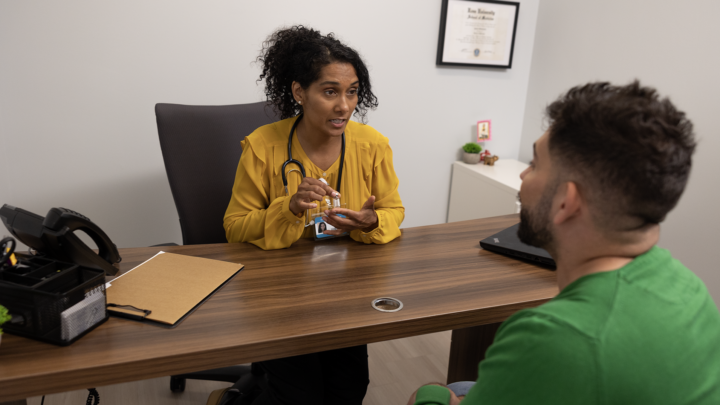
Recently in Canada, a rare strain of gonorrhea was identified as resistant to antibiotics, which are generally the key method for treating the sexually transmitted infection. This is the first known instance of a strain of gonorrhea being resistant to antibiotics in North America.
This unprecedented case has produced some obvious concerns about how to handle potentially antibiotic-resistant sexually transmitted diseases in the future. Experts predict that treatment would become a lot harder and generally lengthier and more involved for the patient.
This news story was the basis for us asking doctors on Sermo, “Are antibiotic resistant diseases that are sexually transmitted more concerning than other antibiotic resistant diseases?”
Out of the 3,602 physicians from 49 countries who responded, 57 percent said ‘no,’ and argued that there were other antibiotic-resistant viruses that are more concerning:
“Definitely not… Surely, everybody would agree that they are much, much, much less concerning than those that are spread by way of airborne transmission.” – Family Medicine, US
“I do not see why we would prioritize STD vs other infectious diseases.” – General Practice, Canada
“Airborne or community acquired or hospital acquired DR/MDR bacteria should be 100% of the concern to physicians.” – Psychiatry, US
“Antibiotic resistance of hospital-acquired infection is a more important public health problem.” – Internal Medicine, Israel
“The problem of resistant germs is notoriously widespread and very worrisome. There is no difference between sexually transmitted diseases and infectious diseases in general. It is necessary to change attitude quickly in the prescription of antibiotic therapies so as not to worsen the current state!” – Gastroenterology, Italy
However, 43 percent of doctors responded ‘yes, antibiotic resistant STDs are more concerning’:
“Yes. First of all, many people do not come for treatment of STD as they are associated with social stigma, moreover irrational use of antibiotics may increase the resistance. So avoid antibiotics abuse, otherwise time will come when we will have very few choices left.” – Pediatrics, India
The poll was fielded in January of 2017. 3,602 physicians responded to the poll. The margin of error for the global poll was ±2%. More information about Sermo polling methodology can be found here.
Are you a physician? Log into Sermo to weigh-in on this public health conversation with other doctors from around the world.








